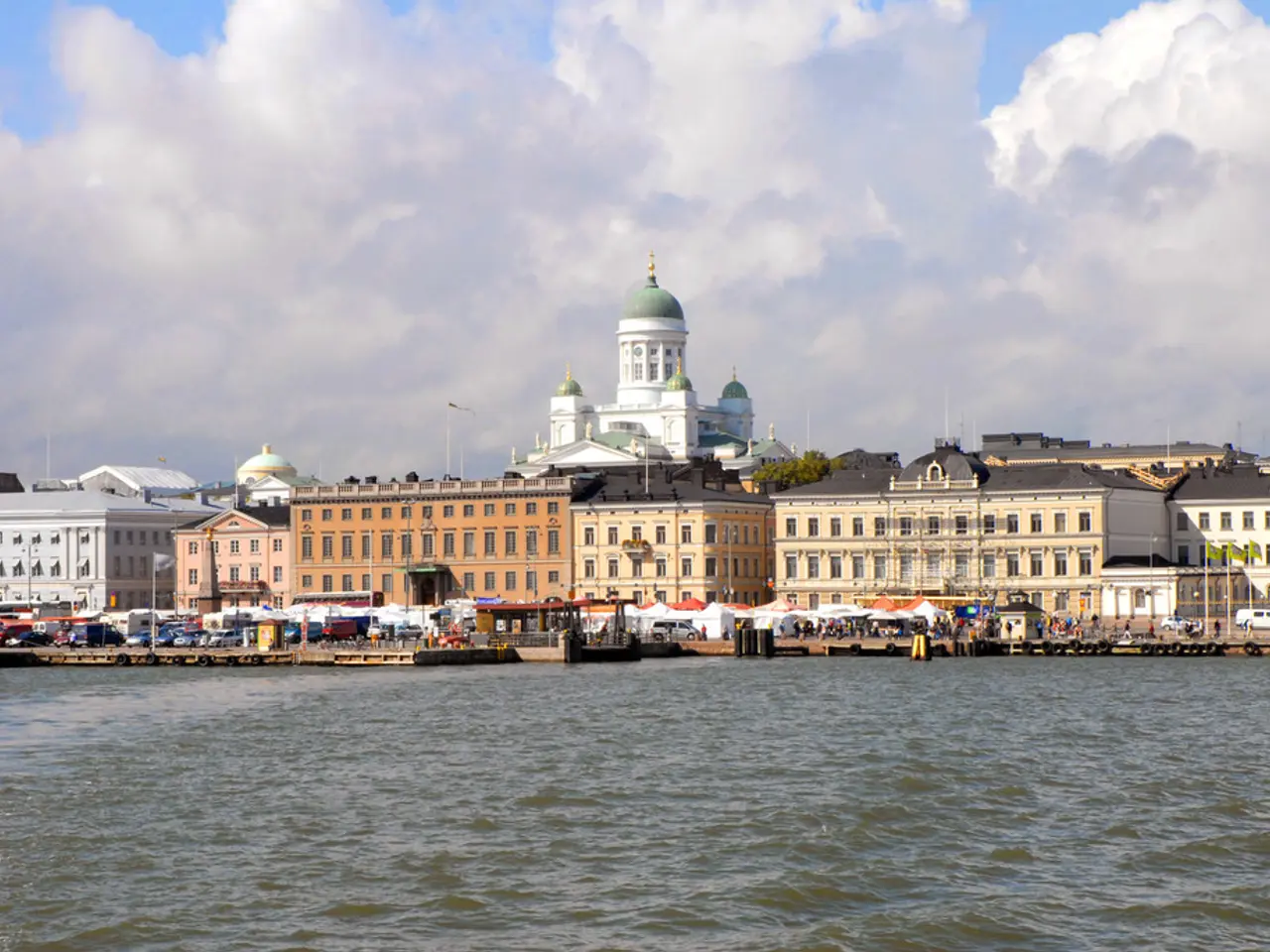Ukrainian nationalism and evangelical Christianity in Ukraine context
In the midst of the ongoing conflict in Ukraine, the Christian community has found itself at the forefront, responding missionally to the horrors of war. Ukrainian evangelical seminaries, in particular, have been a beacon of hope, emphasizing a future orientation grounded in Christian faith.
The war's support by Russian believers, however, has been viewed as a betrayal of Christ and the Church by Ukrainian theologians. Despite this, Ukrainian evangelical churches have refused to abandon their Christian identity, choosing instead to uphold universal human and Christian values.
Pastor Igor Bandura, in a powerful statement, has highlighted Ukraine as a civilization of freedom and diversity, contrasting it with the slave mentality of the inhabitants of the 'Russian world.' Ukrainian evangelical believers see nationalism as open, peaceful, and inclusive, and model this in their communities.
Modern Ukrainian nationalism, it should be noted, is civic, finding its foundation in shared values rather than blood and soil. This is a significant contribution to the understanding of national identity, as Ukrainian evangelical believers appeal to universal human and Christian values, emphasizing the importance of religious freedom and diversity.
The war in Ukraine is seen as a test for the Christian community, with seminaries forming a reflective, compassionate, and hopeful community. The churches in Ukraine emphasize that a true understanding of freedom should be rooted in both national culture and Christian teaching.
The genocide in Ukraine is seen as a crime against humanity and cannot but affect everyone. Public opinion polls show that the Russian military aggression has only strengthened Ukrainians' understanding of their national identity as freedom-loving people who share European values.
The churches in Ukraine also see Ukraine as part of Europe, but understand the process of European integration from a Christian, non-secular perspective. The 'denazification' of Ukrainians carried out by Russia is viewed as a challenge not only to their nation but also to humanity, and Ukrainian churches and theologians view it as a challenge to the entire civilized world and the unity of the universal Church.
It is worth mentioning that problems with religious freedom have occurred only on Ukrainian territories occupied by Russia. Russian occupation military units often burn libraries and warehouses of religious literature, especially in Ukrainian and English, considering it propaganda literature.
The share of Ukrainians who identify themselves with the Soviet past and Russia as the heir of this past has radically decreased. This shift in perception is a testament to the resilience of the Ukrainian people and their commitment to their Christian and European identity.
In conclusion, the Ukrainian evangelical community is playing a crucial role in shaping the nation's identity, emphasizing universal human and Christian values, and promoting dialogue, reconciliation, and a hopeful vision based on biblical promises. The war in Ukraine is viewed as a war of humanity, moral values, and virtue against concentrated evil with a satanic fascist nature. The Ukrainian people, through their faith and resilience, continue to stand as a symbol of hope in a challenging world.
Read also:
- United States tariffs pose a threat to India, necessitating the recruitment of adept negotiators or strategists, similar to those who had influenced Trump's decisions.
- Weekly happenings in the German Federal Parliament (Bundestag)
- Southwest region's most popular posts, accompanied by an inquiry:
- Discussion between Putin and Trump in Alaska could potentially overshadow Ukraine's concerns







